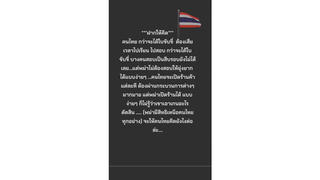
Does tissue (like toilet paper) cause cervical cancer? No, that's not true: There is no substantiated evidence demonstrating a direct link between tissue and cervical cancer. The primary causative factor for cervical cancer is the human papillomavirus (HPV), predominantly transmitted through sexual activities such as vaginal, anal and oral intercourse. Additionally, HPV can spread through skin-to-skin contact from one individual to another.
The claim appeared in a video (archived here) on TikTok by @teacherwara on March 4, 2024. The caption (translated from Thai to English by Lead Stories staff) read:
Using the wrong type of tissue can lead to cancer
This is what the post looked like on TikTok at the time of writing:
(Source: TikTok screenshot taken on Fri Mar 22 09:54:13 2024 UTC)
In the video, a girl claims to have been diagnosed with cervical cancer, which she attributes to the tissue she has been using. Cervical cancer (archived here) is characterized by the growth of cells that originate in the cervix, the lower part of the uterus connected to the vagina. Several factors (archived here) can contribute to cervical cancer, including HPV (in the majority of cases), HIV, other sexually transmitted infections, smoking, the use of contraceptive pills and familial predisposition.
There is no evidence to prove that tissue can cause cervical cancer. A TV program in Thailand called "Sure and Share" (archived here) investigated this claim and consulted with a doctor from the Gynecologic Oncology department at Ramathibodi Hospital. The doctor confirmed that tissues do not cause cervical cancer. She clarified that the virus cannot survive on dry tissue for extended periods, and bacterial infections do not lead to cervical cancer. Moreover, tissue is primarily used on the external female genitalia, thus the likelihood of it reaching the cervix and causing an internal infection is unlikely.
However, while tissue itself cannot cause cervical cancer, it remains crucial to select tissue suitable for genital use. According to doctor recommendations, (archived here) use clean, dry tissue without perfume or chemical substances, as these can irritate the area and potentially lead to bacterial infections.











